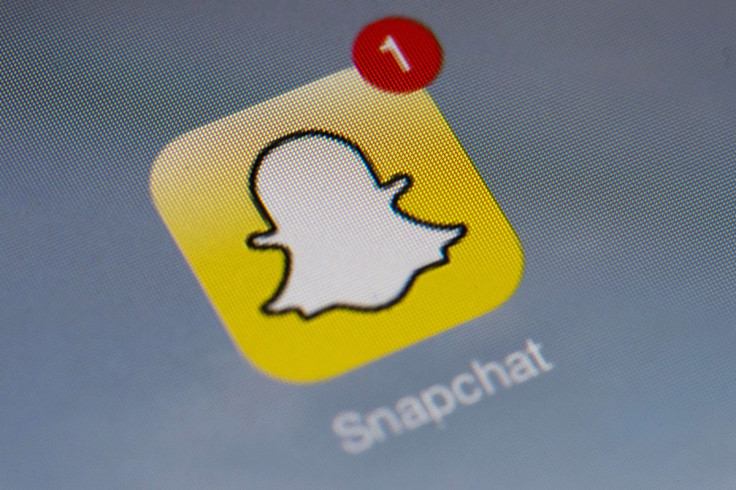Teenagers simply can't imagine a world without social media – that's why we need to ban it

This week, the European Union put forward proposals recommending a legal ban on under 16s joining social networking sites without parental permission. Naturally, this was reported in some quarters as another excuse to whip up anti-European sentiment. However, as the government's mental health tsar for schools, my initial reaction to the news was positive.
Of course, I paused to ponder how on earth such a law would be enforced. After all, we live in a world where the average 10 year old has far more technological expertise than their parents (as a recent experiment in which a teenager was handed the "Fort Knox of laptops", with every conceivable parental block in place and proceeded to access online pornography within 30 seconds proved). Putting aside the practical considerations, however, I believe the general sentiment of the proposal to be sound.
Having worked in the field of adolescent mental health for almost a decade now, I don't think it's unnecessarily hyperbolic to state that the internet, and more specifically social media, is one of the single biggest contributors to poor mental well-being in under 21s. Official statistics relating to the increase in incidents of mental illness in young people during this time have not yet been released, and there is some dispute as to how accurate these would be in any case, since strain on services means that the thresholds for qualifying for medical intervention are ever-increasing.
However, we do know that some experts estimate that the four most common mental health issues faced by teenagers (anxiety, depression, self-harm and eating disorders) have collectively risen by 600% in the UK over the past 10 years. We also know that hospitalisations for self-harm and eating disorders have doubled over the past three years. Furthermore, evidence presented by the All-Party Parliamentary Group (APPG) on Mindfulness shows that, while 50 years ago the average onset age for depression was around 45, in 2015 it is just 15. Something has gone terribly, terribly wrong.

Aside from decreased quality family time, increased poverty and the streamlining of the curriculum (leading to increased school stress), all of which have played their part in poor mental health in the young, it is technology which has had the most dramatic impact on the landscape of children and adolescents' life.
Professor Rachel Thompson published a paper in 2013 in which she theorised that while adults "dip in" to social media as and when their days allow, today's teenagers see activities like school and family time as "pauses" in their online, social existences. If she is right, this means the entire purpose of social media has been inverted, in that it appears more "real" to many of its young users than whatever is happening in the world of three dimensions.
My sense is that we won't know the true impact of social media on brain development for at least another 20 years, since the technology tends to develop faster than neuroscientists are able to reliably analyse it. This renders the generation who have been born into the era of smartphones somewhat of a guinea pig, which is in itself worrying prospect. However, we do know, for example, most social media users have a "Pavlovian" response to receiving a notification, even if it's simply their "friend" inviting them to play Candy Crush, leading not only to a rush of pleasure-giving endorphins, but also the desire to respond immediately.
This goes some way to explaining why a survey by BBC's Newsround in November found that a third of children feel actively guilty if they don't respond to texts and other notifications immediately. We also know that in prolific social media users certain parts of the brain are enlarged – the parts that are concerned with social standing and how we compare to others, which of course has a catastrophic effect on self-esteem.
While adults "dip in" to social media as and when their days allow, today's teenagers see activities like school and family time as "pauses" in their online, social existences
BullyingUK has also spoken out about how social media has changed the nature of bullying. In an online survey, the charity found that 43.5% of respondents aged between 11 and 16 had been bullied via social networks. It believes children can be relentlessly bullied with no respite as online social media channels permeate the home and the school environment.
More anecdotally, the modern trend of using tablets and iPhones as "babysitters" has, I have noticed, meant that many children are not developing crucial social and conversational skills and, unlike the ability to swipe, these are skills which are difficult to pick up in later life.
The problem is, simply by dint of the fact that they were born into a world where the constant presence of social media in their lives has been completely normalised, most teenagers don't see it that way. The Grange School in Cheshire surveyed its pupils this year and discovered that hardly any of them saw social media as being problematic for their sense of self or mental well-being. This is despite it exposing them to a deluge of Photoshopped and filtered selfies, humblebrags, advertisers set on exploiting their desire to be popular and gorgeous, pornographers and cyberbullies. They cannot, I suspect, imagine a world in which these were not Goliaths to be wrestled.
A child's developing brain is completely different from that of an adult's and yet even my generation of mid-thirties regularly bemoan the impact that social media – a world in which you are forced to compare your reality with everyone's airbrushed fantasy – has on our mindset. If we are finding it difficult, imagine how a person who is still discovering who they are, whose sense of self is already precarious and who is far more sensitive to peer pressure, might respond.
In order to navigate social media and to use critical thinking to decipher what you will encounter, it's important to have a perspective whereby you can imagine a world without it. That's why I support the European Union on this issue. I simply have no idea how they're going to do it.
© Copyright IBTimes 2025. All rights reserved.




















